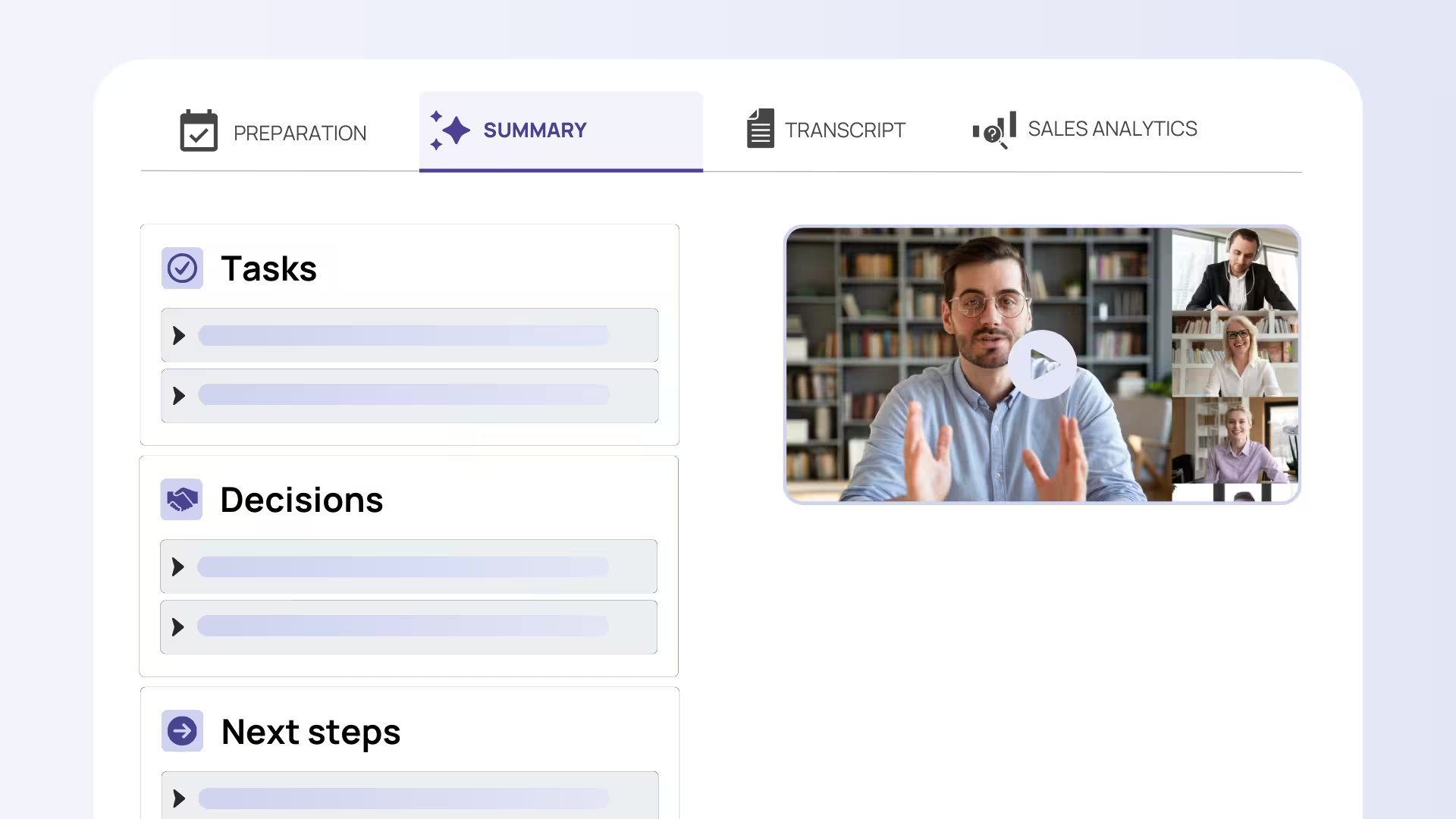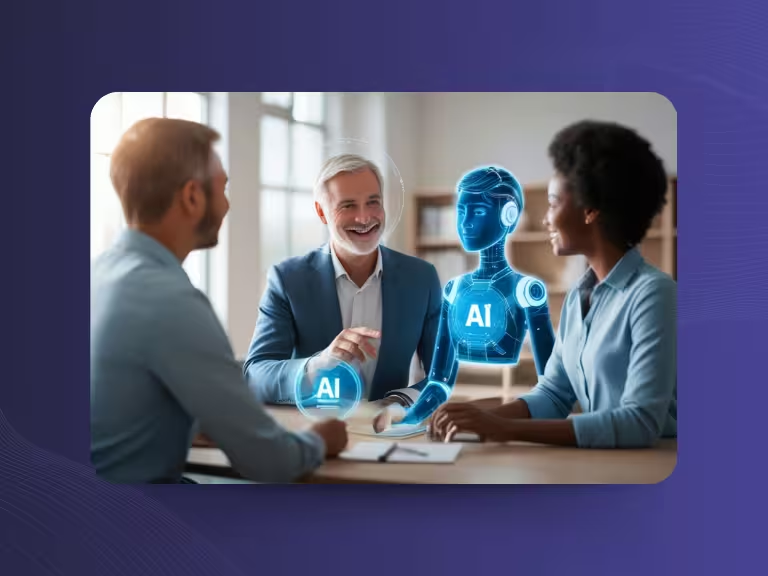Table of Contents
Introduction: Answering Interview Questions – The Key to Success in Job Interviews
Job interviews are the decisive moment in every application process. This is where it becomes clear whether your application is just paper or whether you're truly the right candidate. The way you answer interview questions often determines success or rejection.
But don't worry: with the right preparation and proven strategies, you can master any job interview. In this article, we'll show you how to answer common interview questions confidently, skillfully handle difficult situations, and present yourself authentically. You'll learn about the STAR method, discover how to deal with nervousness, and conduct digital interviews professionally.
Our goal is to prepare you for structured, convincing, and honest answers that showcase your personality and competence optimally.
Understanding Common Interview Questions and Their Meaning
Standard Questions and What's Behind Them
Every HR professional has their favorite questions. But behind standard interview questions, there's usually more than you think. Let's take a closer look at the most common questions:
"Tell me about yourself" – This question isn't an invitation to share your life story. The interviewer wants to know how you assess yourself and which aspects of your personality are relevant for the job. Focus on your career milestones, important achievements, and what drives you.
"What are your strengths and weaknesses?" – This is about self-reflection and honesty. For strengths, you should provide concrete examples. For weaknesses, show that you're working on yourself and learning from mistakes. Avoid pseudo-weaknesses like "I'm too much of a perfectionist."
"Why do you want to work for us?" – This question tests your motivation and how well you've researched the company. Superficial answers are immediately obvious. Show that you know the company values and identify with them.
"Where do you see yourself in five years?" – Here, the interviewer wants to understand your goal orientation and career planning. Be ambitious but realistic. Show that you think long-term and want to develop yourself further.
Industry-Specific Questions
Expectations vary greatly depending on the industry. In the tech industry, you often have to solve practical tasks or participate in whiteboard challenges. Here, technical competence and problem-solving thinking count.
In creative professions, your portfolio is the focus. You should not only present your projects but also be able to explain the thinking behind them and how you overcame challenges.
In healthcare, empathy and stress resilience are particularly important. Here, situations that illustrate these qualities are often discussed.

Strategies for Answering Interview Questions Convincingly
The STAR Method: Giving Structured and Comprehensible Answers
The STAR method is your tool for structured and convincing answers. STAR stands for Situation, Task, Action, and Result. This technique helps you give concrete examples instead of vague statements.
Here's a practical example for the question about a challenging project:
Situation: "In my last job, our team faced the challenge of completing an important project with 30% less budget."
Task: "My task as project leader was to find a solution without compromising quality."
Action: "I analyzed all cost points, conducted discussions with external service providers, and developed a new work plan using internal resources."
Result: "The result: We were able to complete the project on time and even came in 5% under the reduced budget."
Dealing with Difficult or Uncomfortable Questions
Difficult questions are often the biggest hurdle in job interviews. The question "Why do you want to leave your current job?" is a classic example. Here, framing is crucial.
Avoid negative statements about your current employer. Instead, focus on your future: "I'm looking for new challenges and want to further develop my skills in an innovative environment."
When asked about terminations or job changes, remain honest but constructive. Show what you learned from the situation and how it made you stronger.
Practical Sample Answers to Follow
"I'm a marketing manager with five years of experience in the digital industry. I was particularly successful in developing social media campaigns that increased my last employer's reach by 200%. What drives me is the connection between creativity and data-driven decisions. That's why I'm interested in this position with you."
"In the past, I used to do too many tasks myself instead of delegating them. This led to overload. I've learned to trust my team and define clear responsibilities. Today, I use tools like project management software to stay organized and lead more effectively."
Self-Presentation and Psychological Preparation for Greater Confidence
Body Language, Clothing, and Appearance
Your appearance often determines the course of the conversation within the first few seconds. Body language and facial expressions convey more than words. Pay attention to upright posture, firm handshake, and appropriate eye contact.
When it comes to dress code: better overdressed than underdressed. Research the company culture and dress accordingly, but always one level more formal than the company's everyday attire.
In digital interviews, eye contact is particularly important. Look into the camera, not at the screen. This appears much more professional and personal.
Managing Nervousness & Stress in Interviews
Nervousness is completely normal and even a good sign – it shows that the job is important to you. Breathing techniques help you stay calm. Consciously breathe deeply in and out before the conversation.
Visualization is a powerful tool: imagine how the conversation goes successfully. This mental preparation can significantly strengthen your self-confidence.
Remember: the interviewer wants you to succeed. It's not an interrogation, but a conversation between equals.
Mastering Digital Interviews Professionally
Digital interviews are standard today. Technical preparation is crucial: test your camera, microphone, and internet connection beforehand. Nothing is more embarrassing than technical problems during the conversation.
Pay attention to optimal camera positioning – at eye level and with good lighting from the front. Your background should be neutral and professional. Avoid distractions like notifications or noise.
When actively listening in video interviews, small pauses are normal. Allow them and don't rush. Tools like Sally can help you prepare for digital conversations by recording and analyzing your video conferences – so you can improve your performance.
Sustainable Interview Preparation: Feedback, Diversity & Individualization
Proactively Seeking Feedback After the Interview
After the interview is before the next interview. Feedback is worth its weight in gold for your development. Ask politely, preferably via email about a week after the conversation.
"Dear Ms. Smith, thank you for the interesting conversation last week. Regardless of the decision, I would very much appreciate brief feedback, as my personal development is important to me. Do you have two minutes for a few pointers?"
Use feedback constructively. Even negative feedback is valuable if it helps you improve.
Considering Diversity and Inclusion in Interviews
Diversity topics play an important role in modern interviews. Many companies ask about your attitude toward inclusion and team culture. Prepare for questions like: "How do you promote diversity in teams?"
Authenticity is particularly important here. Reflect on your own experiences and values. Show that you don't see diversity just as a buzzword, but as an enrichment for teams and companies.
Share concrete examples of how you've integrated into diverse teams or contributed to inclusion. This makes your statements credible.
Tips for Individual Preparation – Industry-Specific and Personal
Every company is different. Research the company values and adapt your answers accordingly. Look at the website, read current press releases, and learn about the company culture.
Industry-specific adaptations are crucial. A startup expects different answers than a corporation. A tech company emphasizes different aspects than a traditional mid-sized company.
Use modern tools for preparation. Sally, for example, can help you analyze and improve your conversation skills by recording and evaluating your practice interviews.

Conclusion: Answering Interview Questions – Holistically, Authentically, and Confidently to Your Dream Job
Successfully answering interview questions is an art you can learn. The most important insights at a glance:
Structured answers using the STAR method give you security and make your statements comprehensible. Concrete examples and honest self-presentation convince more than empty phrases.
Your body posture, psychological well-being, and digital competence are just as important as your professional answers. In today's digital world, you must master both worlds.
Don't forget industry-specific adaptation and the importance of diversity topics. Modern companies expect you to think about these issues.
Proactive feedback is a learning opportunity you should definitely use. Every conversation makes you better for the next one.
Prepare actively and trust in yourself. With continuous practice and the right strategies, you'll master your next job interview. Modern tools can support you in this – use all available resources for your success.



Try meeting transcription now!
Experience how effortless meeting notes can be – try Sally free for 4 weeks. No credit card required.
Test NowOr: Arrange a Demo Appointment



